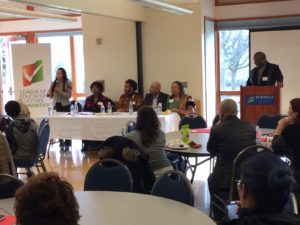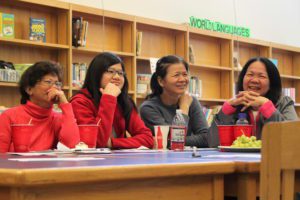Korsmo’s Weekly Roundup: Sunny Skies for Now

You ever play those meeting “icebreaker” games where you have to indicate which tree you’d be, or what animal you were in a past life? If the legislature were a condiment, what would it be? My vote this week is ghost pepper sauce. Discuss.
Money, Money, Money, Money. Money! When last we met we shared the news that the legislature had averted multiple local education funding crises by passing an extension of the levy cliff. This was welcome news for many, even as attention quickly turned to the bigger issue, McCleary. The good news? The economic forecast is sunny. The bad news? Well, for now, there really isn’t any. Yes, the two sides might bicker from time to time and we don’t yet have a final plan to fund, but we will. Our aim is to make sure more of the resources intended for kids who need something more or different – see gaps diatribe below – actually get those resources. Even while we build a compensation system that our education professionals find both fair and energizing.
Next week we’ll get our first look at how the Senate will address education funding when they release their budget. Expect the House version the week after. Here’s how things stack up so far.
Testing Testing: The state’s long love affair with the testing debate will air in all its glory next week when Senate Education takes up HB 1046, the House bill that “delinks” passing the state’s math, English language arts and science exams from high school graduation. Superintendent Reykdal was asked about it recently and spoke in support of removing the requirements. We’ve long taken a different position, that delinking the exams makes it difficult to know whether they’re taken seriously. As the only consistent statewide measures of proficiency, we need good – comparable – data that tells us how our students are doing and importantly, how students fare by groups. We’ve long said we can’t close gaps we can’t see. Between the national moves to reduce federal oversight – or even expectations – and the state wanting to no longer (accurately) capture this information, our kids caught in the opportunity and achievement gaps will be invisible. And, sadly, kids who think they’re college material because they can pass the high school courses that meet the graduation requirements will often find out that they are in fact, NOT ready for prime time. For a state with the kind of student academic performance we have – only 31% of our kids get a degree or certificate from a two- or four-year college – this is a major step backward. Proponents will say that kids are the only ones being held accountable for proficiency – the graduation requirements are high stakes exit exams. It’s true our system is not a bastion of accountability. But eliminating the little bit that we have will only hide the gaps, mislead our kids, and drive our degree completion rates in the wrong direction. (How do I really feel?)
While we’re talking about money, the President’s budget was released this week and it is not a good time to be poor, or a first-generation college student, or a kid in after school programs. The good news here is that a President’s budget is typically just a conversation starter. And, by the looks of it, everybody’s talking.
Light Reading:
- Sometimes a walk in the woods really pays
- Speaking of gems, there’s one right in our backyard.
- More thinking on the causes and impacts of the achievement gap.
As always, thank you for all you do on behalf of our kids. Happy Saint Paddy’s Day!
Chris
Want to get the Weekly Roundup in your inbox? Sign up here










 Thank you to everyone who attended LEV’s 7th Annual Parent & Community Training!
Thank you to everyone who attended LEV’s 7th Annual Parent & Community Training!
 The
The 
 The
The